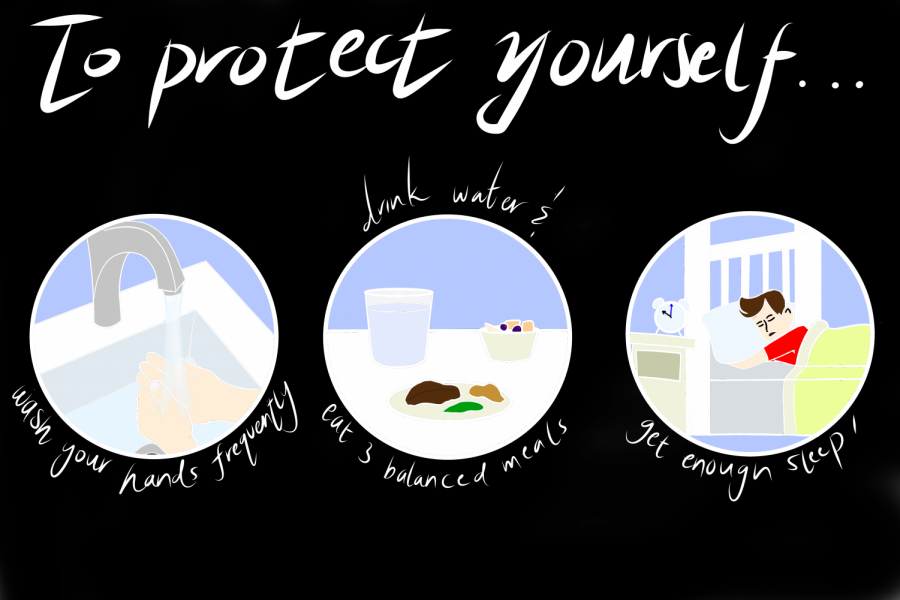Sickness at School and Ways to Stay Healthy
Sep 12, 2019
Getting the contagious viruses that go around the school is no fun and the very busy McIntosh schedule means lots of makeup work for returning students.
Every year at McIntosh, a high number of students become ill within the first few weeks and the students who get the illness often complain of the same symptoms making this a contagious virus.
McIntosh’s nurse, Julie Joiner, gave some great tips on how to avoid catching this illness as well as other possible contagious viruses. “The best way to avoid illness is very easy: wash your hands properly with soap and water or use hand sanitizer,” said Joiner.
Keeping your hands clean and making sure you wash or sanitize them before you eat is one of the easiest ways and most effective ways to prevent sickness. Not only is washing your hands an easy way to prevent illness but making sure you get an adequate amount of sleep, making sure you eat three complete meals each day and drinking sixty-four ounces of water or more each day. All of these steps are key to follow to stay healthy throughout the school year.
Students should be following those steps but if they come down with an illness, they should be able to tell whether they need to stay home or push through the day at school. Mrs. Joiner gave some great advice for a student to make an educated decision about going to school. She said, “A student is required to stay at home if they have been diagnosed with one of the contagious viruses that are detailed in your Student Handbook. A student should also stay at home if they have a fever above 100.4, have vomiting or diarrhea, have an unexplained rash, drainage from a wound, rash, eyes, or head lice or scabies.”
A student’s decision to stay home should include at least one of the stated reasons above and they should go to the doctor if necessary. Mrs. Joiner put it very simply in her statement, “A student should speak to their parent about treatments that could help them feel better and continue to participate in school.”










